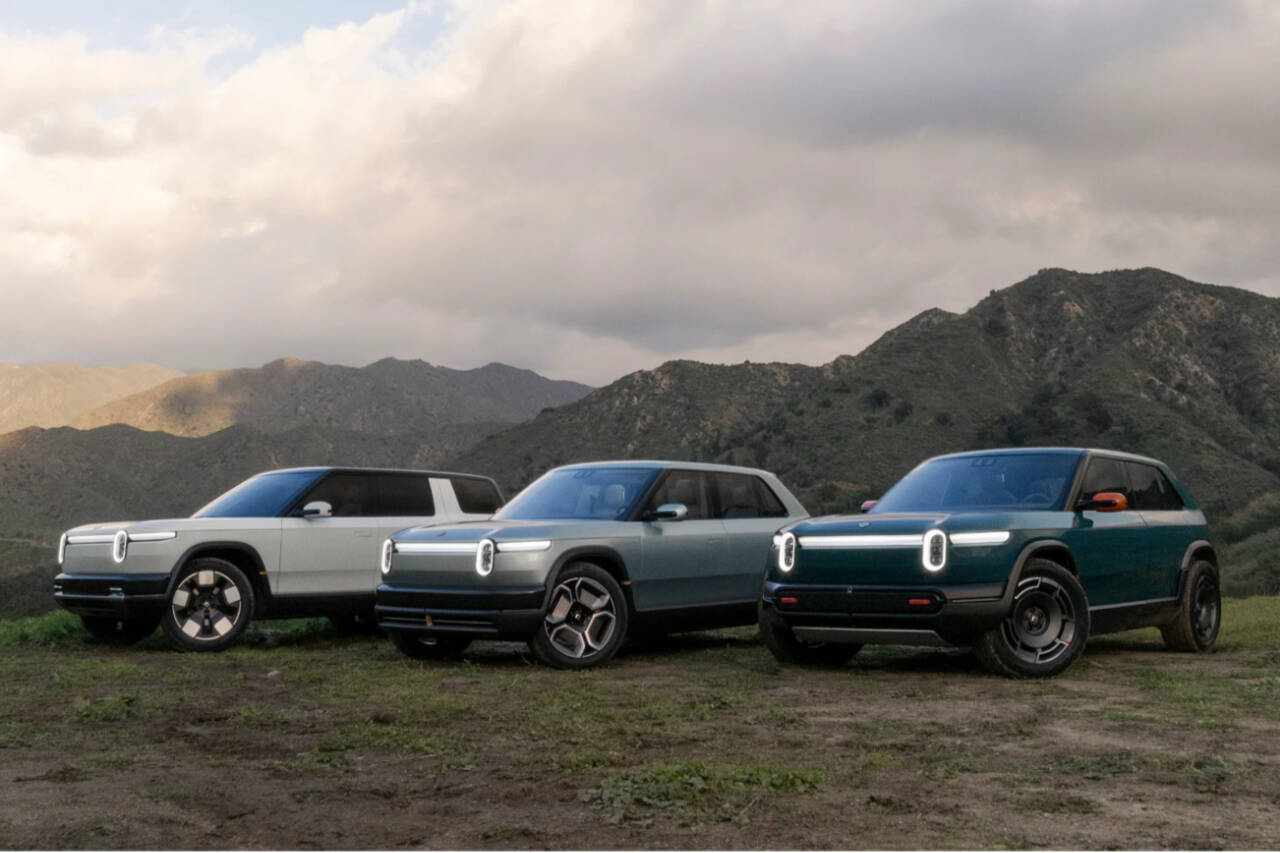By The Herald Editorial Board
If you’re in the market for an electric vehicle, your shopping experience — rather than your mileage — may vary, depending on the make of car or truck you’re most interested in.
If, say, you’re curious about the vehicles that U.S. EV-only manufacturers, such as Lucid and Rivian offer, you’re invited to their University Village “spaces” in Seattle to kick the tires, climb into a seat, inhale that “new EV smell” and hang-out in the parking lot, but that’s about it. No test drive of Rivian’s trucks or SUVs, no discussing with a sales associate of the colors and options of Lucid’s Air and Gravity sedans and SUVs.
And if you want to talk leases or purchase and financing, rather than being directed to an office, you’re offered a web address, where you can make those arrangements yourself, after which you’ll wait for delivery. You won’t be driving off the lot that afternoon, except in your old car.
That’s because state law prohibits auto makers from selling directly to customers, leaving that business to dealerships in the state. The only exception to the law, adopted in 2014, was for Tesla, which is allowed to sell directly to customers, an exemption allowed when it was basically the sole EV-only maker in the U.S.
More than an inconvenience for someone already sold on the idea of driving an EV, any barrier to electrification of the state’s modes of transportation becomes a climate problem in a state where 45 percent of carbon emissions are generated by transportation, says Leah Missik, director of Climate Solutions, a clean energy and climate effort advocate based in Seattle.
“We are working on these tools to accelerate EV adoption, because from a climate perspective, we need to roughly halve our climate pollution in the next five years,” she said. “The state’s transportation electrification strategy did all sorts of modeling on what that is going to take. And it is going to take a lot.”
Bipartisan legislation in Olympia — Senate Bill 5592 and House Bill 1721 — would open up the direct-from-manufacturer market in the state, joining nine other western states that already allow those sales and leases. The legislation is backed by a coalition of interests that — along with the EV makers — includes Climate Solutions, the state’s electrical workers union, the Seattle Electrical Vehicle Association and others.
As well, the proposal to expand the market is recommended by the state’s Transportation Electrification Strategy.
Vehicle dealerships in the state have been opposed to the legislation, successfully blocking similar proposals last year, but this year’s legislation attempts to resolve their concerns, with the intent of encouraging them to expand their selection of EVs, Rep. Beth Doglio, D-Olympia, the lead sponsor of the House bill, told the Washington State Standard.
The legislation isn’t trying to make things harder for dealers, said Molly Kennan, a governing board member with Evergreen Action, also a climate advocacy group.
“We would like an alternative way to be able to directly sell EVs that we know is going to increase EV use,” she said. “We really just want the same opportunities that Tesla has.”
And expanding the market could even be beneficial to traditional dealerships. A report last year by the National Automobile Dealers Association found that dealers in states where direct consumer access is allowed saw higher revenue and higher employment growth. Colorado, for example, began allowing direct sales in 2020; four years later that state led the nation in market share for EV sales, and employment at dealerships increased over those four years.
Along with standards to level the playing field for warranty work, service centers, unfair practices, manufacturer incentives and markets, themselves, the legislation establishes a zero-emission training and infrastructure grant program that all auto dealerships would be eligible for.
Washington state lawmakers and officials have made impressive strides in addressing the global climate crisis as well as responding to local- and state-level needs to reduce air pollution and improve the environment for all, especially disadvantaged communities.
The state has set a goal — rather than a mandate — to restrict the sale of new vehicles to electric vehicles and other zero-emission vehicles by 2030. And it has used its Climate Commitment Act — with those efforts affirmed last fall by the voters — to encourage the transition to zero-emission vehicles, through its rebates of up to $9,000 for new EVs and up to $2,500 for used EVs, as well as investments in a statewide network of EV charging stations.
Those state efforts may be especially important during the next four years as President Trump works to discourage similar work at a national level. Although EV tax credits, emissions standards and other programs established by President Biden in the Inflation Reduction Act — intended to encourage that 50 percent of all vehicle sales in the U.S. would be EVs by 2030 — remain in effect, Trump has promised to reverse Biden’s efforts, including halting the build-out of EV charging stations across the country.
Those uncertainties should impress upon lawmakers, officials and Washington residents to make all efforts possible to reduce fossil fuel emissions and encourage a clean energy economy.
There’s no reason not to make it a little easier for those who wish to buy an EV to carry out that choice.
Talk to us
> Give us your news tips.
> Send us a letter to the editor.
> More Herald contact information.

























